This post may contain affiliate links. Please read my privacy policy.
Crunchy Shrimp - This is the technique to treat shrimps and make them crunchy, bouncy and firm, just like the ones in Chinese restaurants.
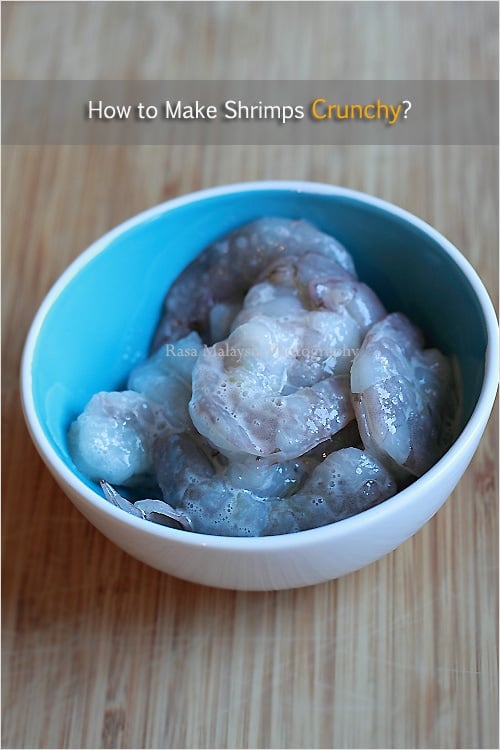
How do you make shrimp crunchy? More precisely, how do you make shrimp Chinese-restaurant-crunchy?
I’ve been obsessed with this subject matter for the longest time–a topic that took me a while to research. If you’ve tried dim sum or shrimp dishes in Chinese restaurants, you know exactly what I mean–shrimp so crunchy they give a mouth feel that they “bounce” in your mouth as you sink your teeth into the firm flesh. In Chinese, it’s called 爽脆 (shuangcui).
Great Chinese food is all about texture and mouth feel (口感) of everyday ingredients, the most basic skill that a good Chinese chef should acquire.
My uncle in Hong Kong is a huge connoisseur and a fantastic cook; he taught me the secret technique which he learned from a Cantonese top chef in Hong Kong–water.
Yes, cold running water to rinse shrimp (up to hours) until the flesh firms up and becomes translucent. I have later confirmed this technique with a few kitchen workers in Chinese restaurants, and yes, it’s true…(learn the secret technique of making shrimp crunchy after the jump)
I tried the cold running water technique at home and it works. However, it’s not ideal for home cooking because too much water is wasted during the treatment process. I resolved to research further for an alternative method best for home cooks.
When I was in Beijing this June, I chanced upon a great Chinese cookbook with the best step-by-step picture guide of making har gow or shrimp dumplings.
It reveals that a pH9 alkaline water is the secret behind crunchy shrimp, and a light massage while marinating pretty much does the trick. The PH9 clue intrigues me.
I came back and went to my favorite Chinese restaurant in Irvine and investigated further. The chef told me that they don’t use alkaline water, but swear by the process of marinating shrimp with egg white, tapioca starch (菱粉) and baking soda, a process they called “上浆” (shangjiang) or literally “coating with starch.”
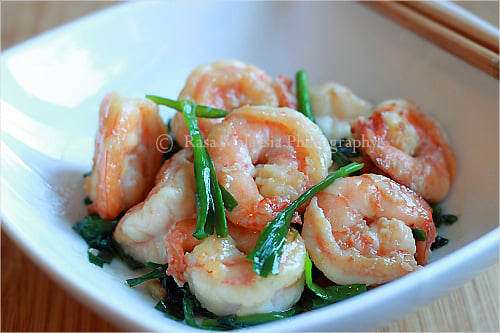
I researched further about pH9–which is a scientific measure of the acidity of a solution. Anything that is more than pH7 is alkaline. I found out that tap water–depending on its source, origin, or location–is usually close to pH9, which explains the reason why cold running water is used by Cantonese chefs.
Sea water is pH8 and the reason why live/raw shrimps have firm and crunchy flesh. I also learned that baking soda and egg white are both pH8. At that point, everything becomes crystal clear to me.
So, here it is, the technique that you’ve been waiting for–a well-protected “trade secret” used by Chinese and Cantonese chefs to treat their shrimp, which I have adapted and modified for home use.
I’ve tested it many times in my kitchen and it never fails me. I made my shrimp and chive dumplings with texture exactly like the ones served at dim sum restaurants.
I made a stir-fry shrimp dish and the shrimp bounced in my mouth and “crunched” as I bit into the flesh. This technique works like a miracle!
If you know another technique that works well, please share with me via comments! Otherwise, try my method below and you will be serving jumpy, bouncy, and crunchy shrimp in no time!
.
BRAGGING RIGHTS AND SELF PROMOTION
I am on Saveur’s “Sites We Love” at number 27, right after the big wigs such Apartment Therapy’s The Kitchn, Gourmet, and Culinate!! Thanks to the team at Saveur, I love you guys!!
I am also one of the “55+ Foodies to follow on Twitter” on Mashable. Go Rasa Malaysia!
Frequently Asked Questions
This recipe is only 117 calories per serving.
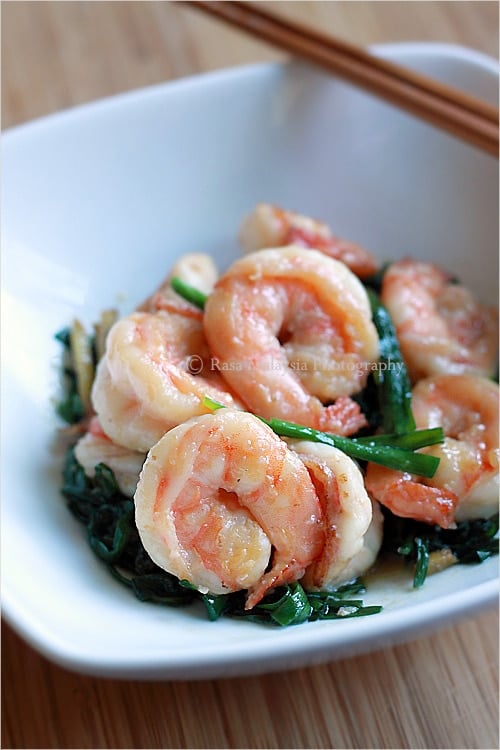
What To Serve With Crunchy Shrimp
For a wholesome meal and easy weeknight dinner, I recommend the following recipes.
I hope you enjoy this post as much as I do. If you try my recipe, please leave a comment and consider giving it a 5-star rating. For more easy and delicious recipes, explore my Recipe Index, and stay updated by subscribing to my newsletter and following me on Facebook, Pinterest, and Instagram for new updates.
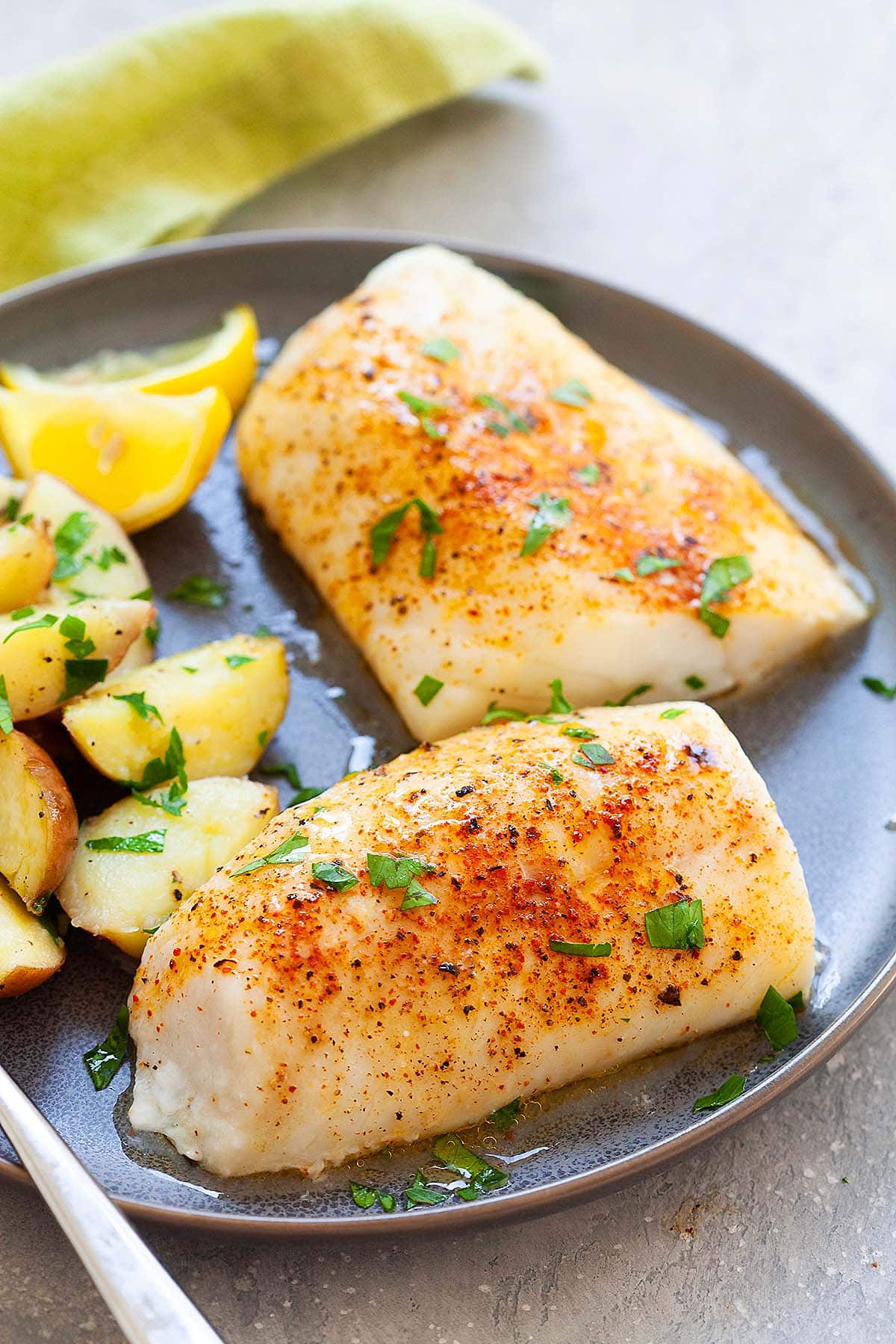
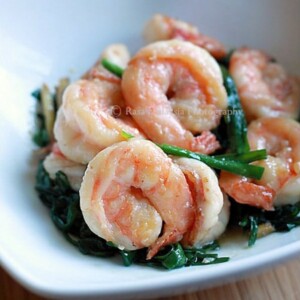
Crunchy Shrimp
Ingredients
- 1 lb (500g) shrimp, peeled and deveined
- 1 tablespoon egg white
- 1 1/2 teaspoons tapioca starch, 菱粉
- 1 tablespoon baking soda
Instructions
- Peel the shrimp, slit the back, and remove the veins. Transfer the shrimp to a large deep bowl and add ice-cold water from your fridge (or regular tap water with some ice cubes). Ensure the shrimp are fully submerged in the water.
- Add 1 heaping tablespoon of baking soda to the bowl and lightly massage the shrimp in the baking soda water. Set aside for 30 minutes.
- Rinse the shrimp thoroughly under cold running water and pat them dry with paper towels. By now, the shrimp should appear somewhat translucent.
- Add the egg white and tapioca starch to the shrimp. Use your hands to blend well while lightly massaging the shrimp.
- Cover the shrimp with plastic wrap and marinate overnight. Cook the shrimp without rinsing off the marinade.
Notes
Nutrition
Nutrition information is automatically calculated, so should only be used as an approximation.
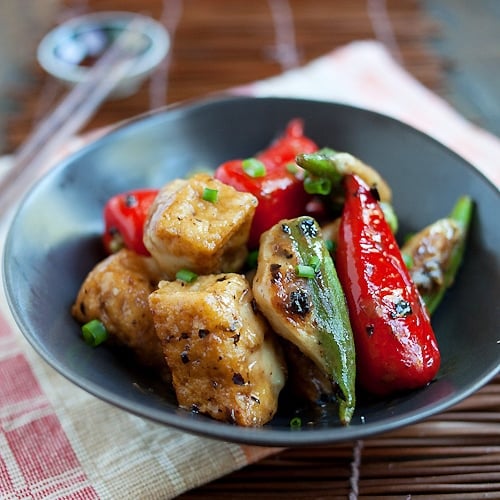
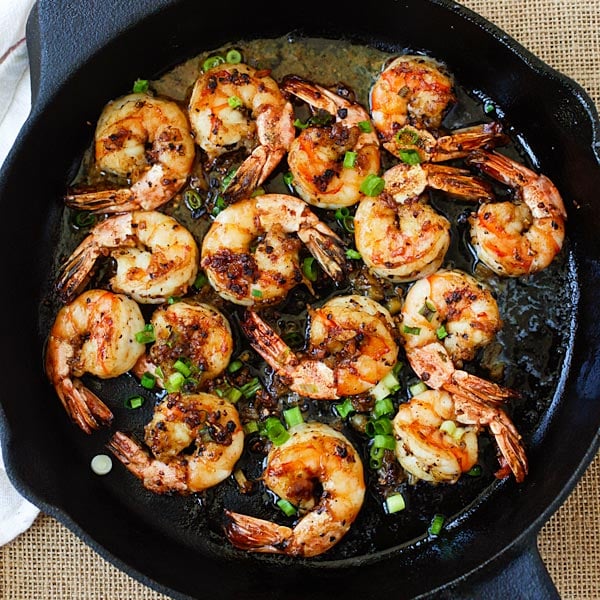
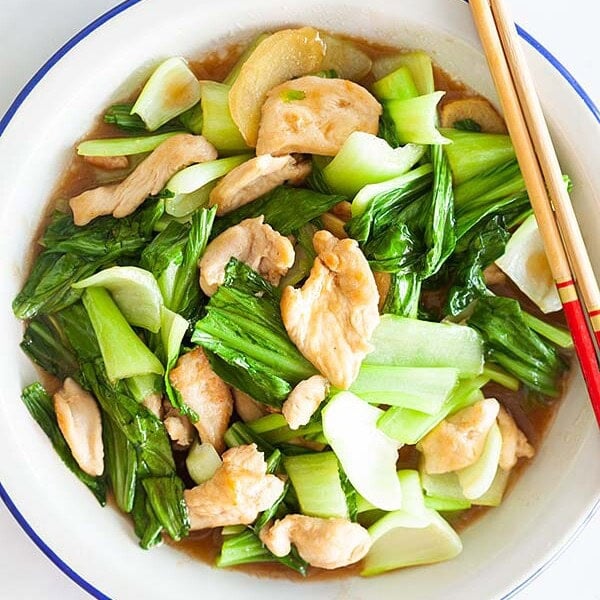
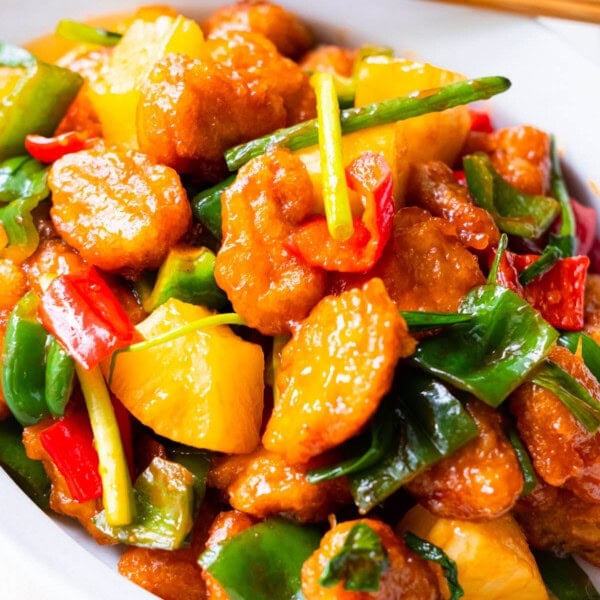






Please share the Great cookbook you found in Bejing, I am so very interested! Its so hard to find a good.Chinese cookbook!
This needs to say how long to cook the shrimp. The atk recipe for 30 seconds on medium high heat isn’t enough
Thanks for sharing your interesting topic…
Now I know why my late father used to remind my late mum to marinate the fresh prawns with cornstartch & egg white before cooking them. I remember, my late granny used to marinate the fresh prawns with “pang sah” for few hours then wash off with clean water to make the prawns crunchy….
Yes pang sah does that trick, too.
What if I just soak it in cold baking soda water massage…and not marinade it in egg white and starch? Will it still be crunchy?
Yes you can try.
Thanks for the post! Could you tell me the name of the Chinese book you bought in Beijing?
I have recently embarked on a career as a dim sum chef and am trying to learn as much as possible, thanks!
Sorry Felix, I can’t remember.
Hi Bee,
Do you think I’ll work better with baked baking soda ? (sodium carbonate pH 11)
http://www.nytimes.com/2010/09/15/dining/15curious.html?_r=0
Cheers Tom
Dear Rasa,
Thank you so much for all the secret you’ve shared with us. May I ask you the name of the Chinese cookbook for dim sum ? And could you please suggest me any bi-lingual book with english translation about dimsum . Thanks so much ;)
Thank you for this, cannot wait to try it.
I think I have quite literally fallen in love with your website and recipes. HAppy tummy = happy heart. ahhhh.
Why is tapioca starch and egg whites needed since you say “Baking soda is also the secret ingredient Chinese chefs use to make meat tender”. What more does the starch and egg whites do?
I’m trying to make shrimp/pork meatball. Should I put the shrimp is cold baking soda water whole or after mincing?
They make the texture smoother. Put in cold baking soda whole, before mincing.
The secret is SPARKLING WATER! You get the best airy tempura texture. Everyone try this at least once and tell me how great it worked!